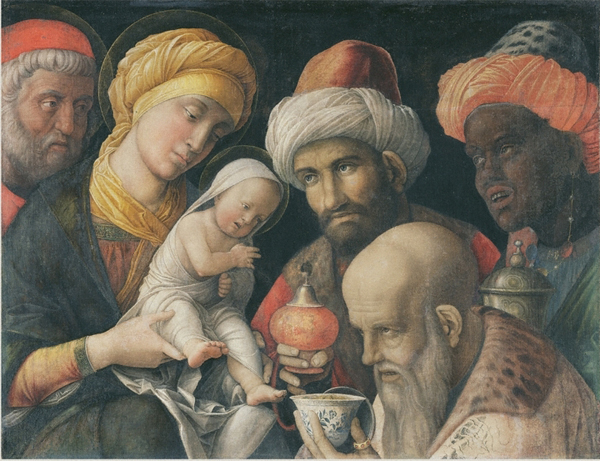Epiphany Sunday
Epiphany celebrates the moment when the wise men encountered divinity in the world—in other words, they had an epiphany—and to mark the occasion I turn to a Yeats poem and to a sermon preached about it by one John M Hull at the Chapel of the Queen’s Foundation in 2006. Hull actually preaches on two poems, the other being T. S. Eliot’s “The Journey of the Magi,” which I have written about in the past (here).
Hull sees this time of year—the hangover following Christmas—as a liminal or threshold time. We have been immersed in the sacred and now we have to move past this threshold and go back to our everyday lives. The transition is hard. Yeats’ poem, he says, points out that, if we tried to hang on to the sacred and fail to deal with the world as it reasserts itself, we will become static. In other words, it can’t be Christmas everyday:
The Magi
By W. B. Yeats
Now as at all times I can see in the mind’s eye,
In their stiff, painted clothes, the pale unsatisfied ones
Appear and disappear in the blue depth of the sky
With all their ancient faces like rain-beaten stones,
And all their helms of silver hovering side by side,
And all their eyes still fixed, hoping to find once more,
Being by Calvary’s turbulence unsatisfied,
The uncontrollable mystery on the bestial floor.
Hull describes the Magi as
thin with age, weariness and transcendence. Their painted, stiff clothes suggest vestments that have gone stale, their hovering in the blue sky suggests their heavenly irrelevance. Their worn, stone faces suggest their petrified emotions, calloused through too many tears, too many prayers, too much searching, endless yearning . . .
The sacred is not a place to remain in. Did not Peter say to Jesus, ‘Lord, it is good to be here. Let us make three little huts, one for each of us’; but the Master refused, and took them down the mountain to where their work lay waiting. Liminality only transforms through contrast. If it becomes habitual, it goes stale. The point of liminallity is not to stay there.
In Hull’s view, the poem is a call to action. Look to the world to find divinity, not to the heavens:
Come on, old wise ones! It is time to take off the beautiful robes, to strip off the vestments! Get down off your camels and get down to work!
Our struggle is always to find God’s presence within the everyday, the “uncontrollable mystery on the bestial floor.” Calvary is turbulent because it is the moment when God (to quote Hull) has been “edged out of the world,” making it hard for us to believe that mystery exists. Think of the disciples’ despair on Good Friday. When we are gripped by Calvary’s turbulence, we lose faith.
Jesus’s birth, however, has given us renewed hope at the darkest time of the year. In Hull’s words, it is “the promise, the little hint, the enigma of birth, the sheer wonder of an utter openness.” As our work lives rev up again and Christmas becomes a distant memory, we can nevertheless look back at the reassurance that, no matter how “bestial” the world becomes, an “uncontrollable mystery” can always be found within it. The remembrance can keep us going.
Previous posts on the Feast of the Epiphany
Epiphany Sunday and the Arabian Nights


